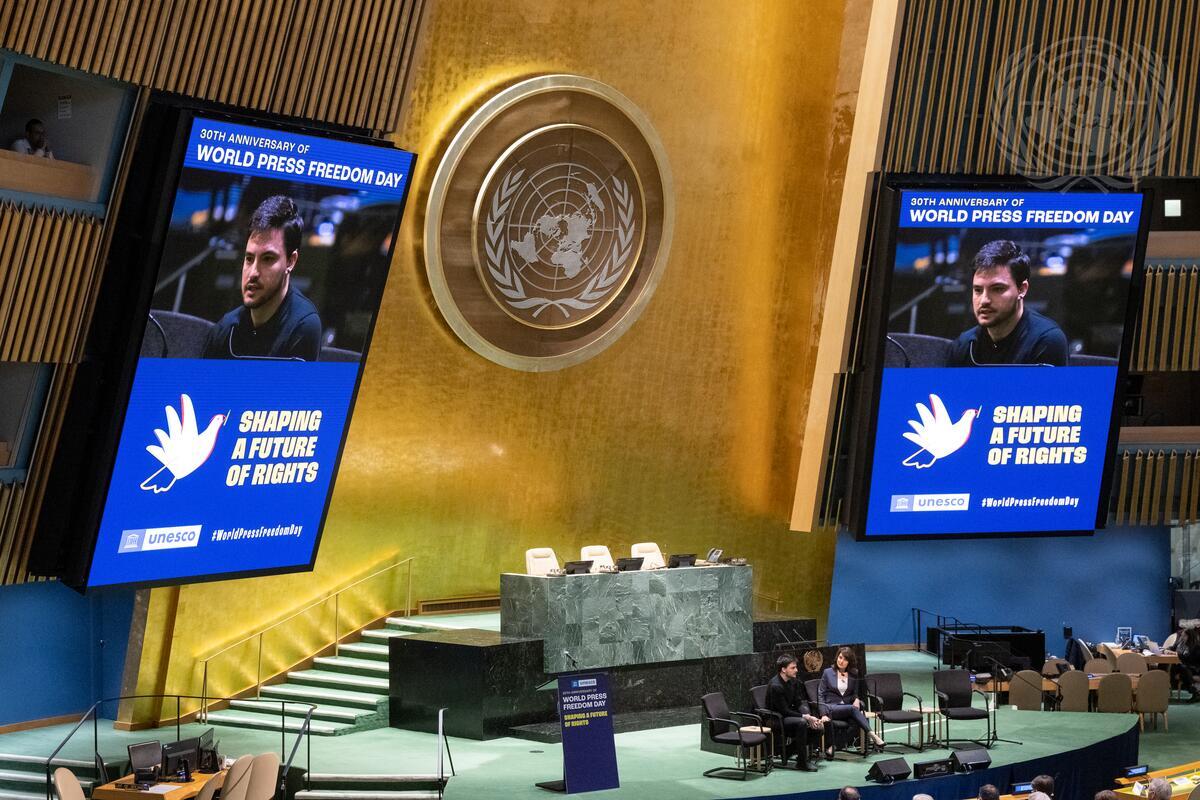World Press Freedom Day, 3 May 2025: free speech in the AI age

On May 3rd, the World Press Freedom Day is celebrated. This year World Press Freedom Day 2025 is dedicated to the effects of AI on freedom of expression.
Proclaimed by the United Nations General Assembly in 1993, the Day aims to raise awareness among governments to respect press freedom in all its forms. On this day, the state of this freedom around the world will be assessed, the importance of defending the media from attacks will be reaffirmed, and the memory of fallen journalists will be honored.
It is important to defend journalists for the work they do in terms of monitoring the transparency and accountability of governments, and here The UN High Commissioner for Human Rights plays a key role.
The advent of artificial intelligence brings new challenges to journalism but also opportunities, without forgetting the fundamental principles of freedom, independence, and media pluralism. Artificial intelligence can be employed to spread false or misleading news, amplify online hate speech, and promote new forms of censorship. Some entities exploit AI for mass surveillance of journalists and citizens, creating an intimidating effect on freedom of expression. Major tech platforms use AI to filter and control visible content, thus becoming powerful guardians of information.
Looking at the positive aspects, AI makes information more accessible, allowing for rapid dissemination. On the other hand, this potential carries risks, such as the spread of false information. In addition, there is a risk that the content is too similar to each other, reducing the different points of view.
AI can also benefit media organizations by making their activities more efficient. However, at the same time, organizations are economically harmed as generative AI tools reuse journalistic content without paying any fees, increasing the profits of tech companies.
From a democratic standpoint, AI contributes to fact-checking and provides tools for journalists and voters to exercise their vote knowledgeably. Again, there are risks, as these tools could be used to damage the democratic process by creating non-true but realistic content.
In conclusion, the main goal to achieve is to ensure free access to information and to protect fundamental freedoms.

